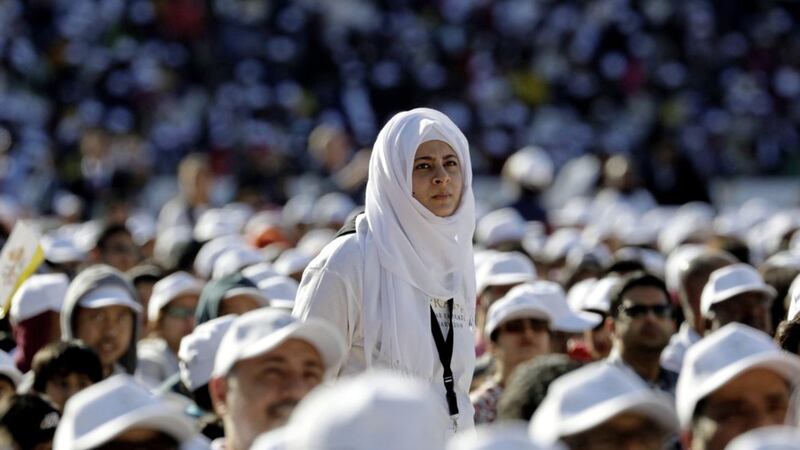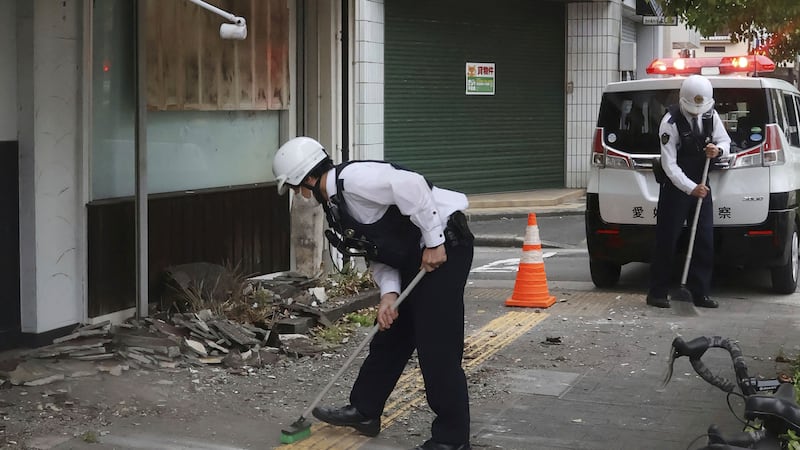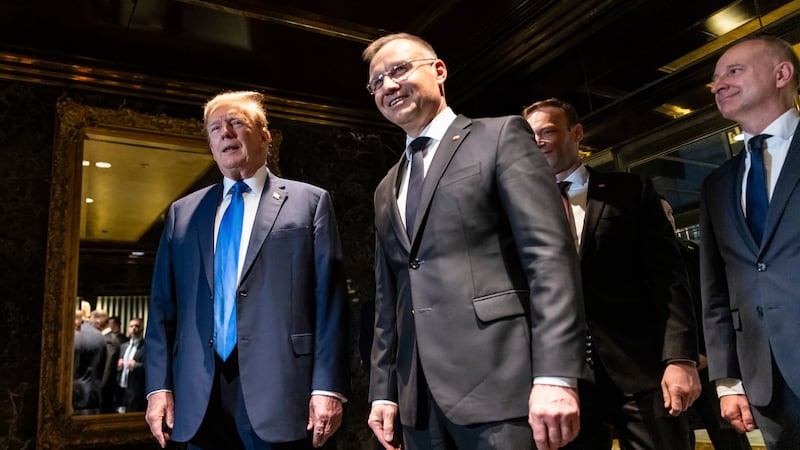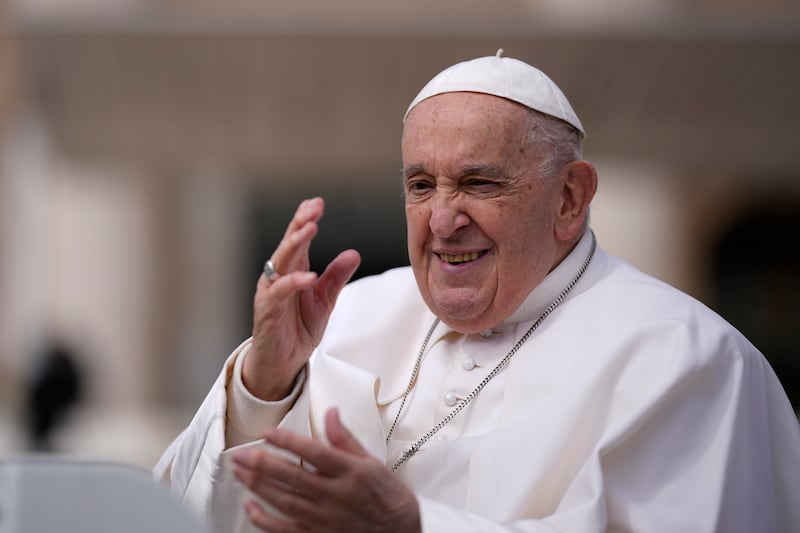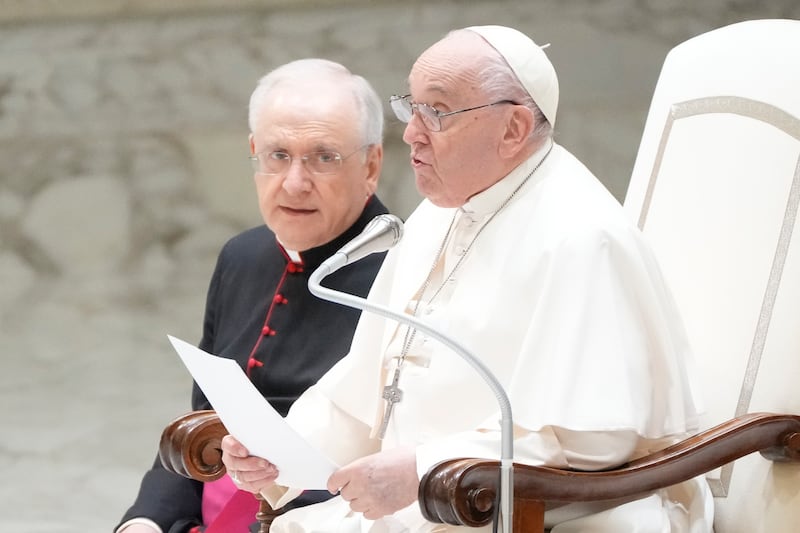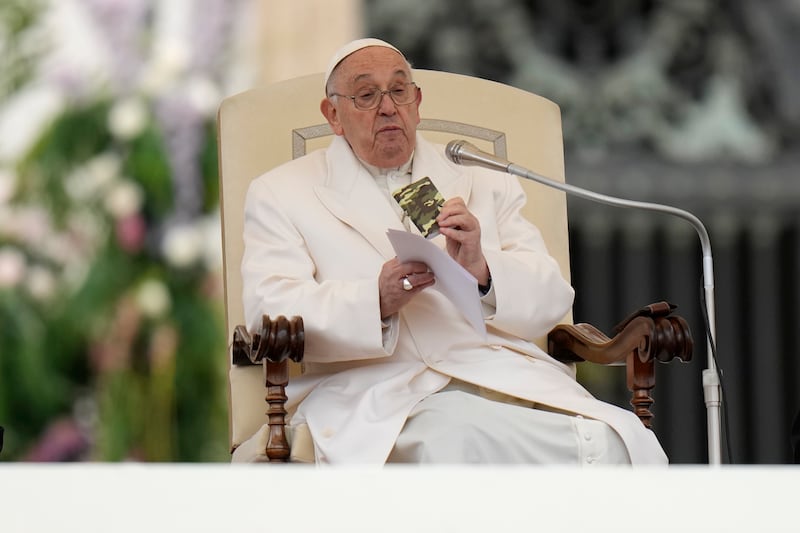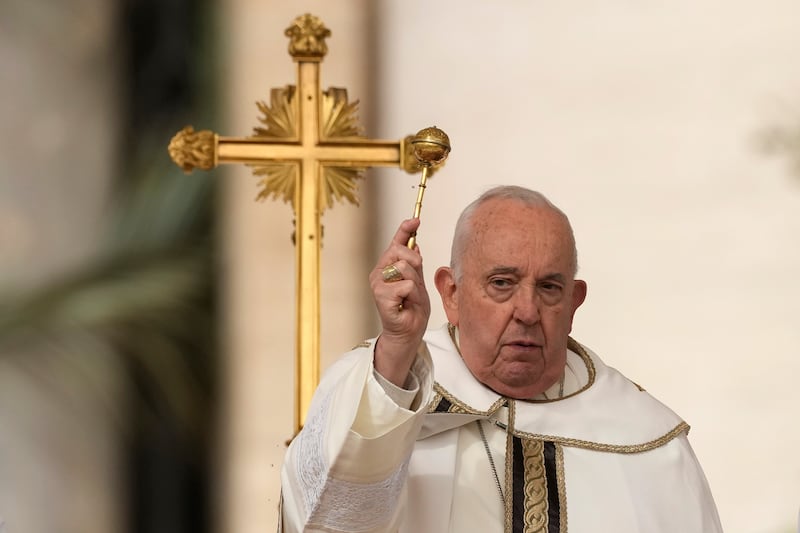Pope Francis ministered to the thriving Catholic community in the United Arab Emirates as he concluded his historic visit with the first-ever papal Mass in the Arabian Peninsula.
A day after making a broad appeal for Christian and Muslim leaders to work together to promote peace and reject war, Francis celebrated what some considered the largest show of public Christian worship on the peninsula, the birthplace of Islam.
Cheers erupted inside and outside the Zayed Sports City Stadium in Abu Dhabi as the Pope arrived and moved through the crowd in his open-sided Popemobile, as chants of "Viva il papa" (Long live the pope) and "We love you!" echoed from the crowd, estimated to be around 135,000.
Organisers said faithful from 100 countries would attend, as well as 4,000 Muslims from this Muslim federation – evidence of the enormous diversity among the nine million people who live in the UAE.
"We have to say it is really a big event for us which we never expected," Sumitha Pinto, an Indian native who has lived in the UAE for nearly 20 years, said.
She attended the Mass with her husband and four sons, the youngest of whom held up sign with the Pope's photo that read: "Welcome Pope Francis. Make Me a Channel of Your Peace."
The Emirates' Catholic community is something of an anomaly for the region – large, diverse and thriving at a time when the wider Middle East has seen an exodus of Christians fleeing persecution at the hands of the Islamic State group and others.
The Catholic Church estimates as many as one million of the over 9 million people living in the UAE are Catholic, nearly all of them foreigners drawn to the oil-rich federation to work in everything from white-collar finance to construction.
Most are Filipino and Indian, many of whom have left behind families back home in order to work. They can face precarious working conditions, which human rights groups regularly denounce.
In his homily, delivered in Italian and translated into Arabic with English subtitles on giant screens, Francis made a direct reference to the sufferings many endure.
"It is most certainly not easy for you to live far from home, missing the affection of your loved ones, and perhaps also feeling uncertainty about the future," he said.
"But the Lord is faithful and does not abandon his people."
Francis also told his flock – many of them poor manual labourers – that they need not build great "superhuman" works to be faithful. It was a message extolling meekness in a country that is home to the world's biggest skyscraper and is known for its opulence and excess.
Jesus, Francis said, "did not ask us to build great works or draw attention to ourselves with extraordinary gestures. He asked us to produce just one work of art, possible for everyone: our own life".
A prayer in the Indian language of Konkani called for public officials to be "illuminated" and promote the dignity of all, while one in the Filipino language of Tagalog urged prayers for migrants and workers in in the UAE so that "their sacrifice and work may blossom and sustain their families".
One in French called for those who carry out violence to change their ways and "stop wars, overcome hatred and help us forge links of justice and peace".
The Mass concluded at around noon and the Pope headed to Abu Dhabi airport for his departure from the UAE.
On Monday, the Pope met Emirati leaders and signed a document promoting "human fraternity" with Sheikh Ahmed el-Tayeb, the grand imam of Egypt's Al-Azhar, the revered 1,000-year-old seat of Sunni Muslim learning.
He also urged religious leaders to work together to reject the "miserable crudeness" of war and resist the "logic of armed power... the arming of borders, the raising of walls".
"There is no alternative: we will either build the future together or there will not be a future," Francis told Abu Dhabi's powerful crown prince and hundreds of imams, muftis, ministers, rabbis and swamis gathered in the Emirati capital at a time when the UAE-backed Saudi war in Yemen has driven the Arab world's poorest country to the brink of famine.
"God is with those who seek peace," Francis said.
Francis' svisit, 800 years after his peace-loving namesake St Francis of Assisi visited an Egyptian sultan, marked the culmination of years of Holy See efforts to improve relations with the Muslim world after they hit a low during the papacy of Pope Benedict XVI.
Since then, religious fanaticism and faith-inspired wars have only grown around the globe, inspiring the pontiff's efforts to promote tolerance and understanding.
